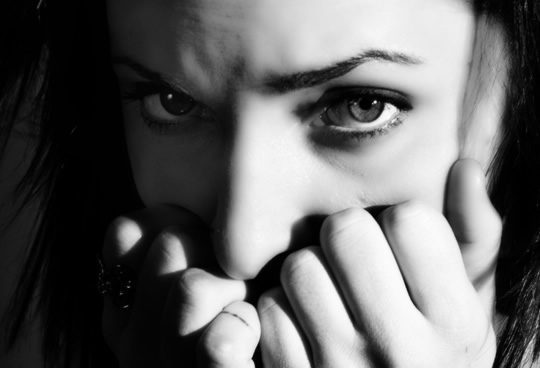
All of us can sometimes experience symptoms specific to a panic attack. Whether it occurs in the context of stressful events or because of exacerbation of feelings such as fear, the most important thing is to become aware of what is happening to you and, above all, to find the required inner resources to overcome this episode.
Ranging from a few seconds to even tens of minutes, panic attacks are often perceived as an intense sensation of anxiety, fear, accompanied by a complete blockage and the feeling that you are actually losing your mind.
Panic attacks can occur anytime, either in our waking hours or during sleep, and are usually manifested by symptoms such as difficulty in breathing, dizziness, rapid heart beat, sore throat, trembling, feeling that something terrible is about to happen, fear of imminent death and loss of control. They can occur due to exaggerated interpretations of physical symptoms, so the affected person tends to seek a biological cause of the mind states they experience. As the problem starts at the psychic level, this is where the solution can also be found.
Practice relaxation techniques.
In the moments right before the attack, learn to accept what is happening to you, saying to yourself, “I know I have a panic attack, but everything will pass, there is nothing so serious about it!” When you feel the feelings of fear are getting stronger, take a deep, deep breath, and then, when exhaling, let these feelings “go away”. Continue to breathe, deeply and rarely. Through relaxation, the brain no longer receives information that something “serious” is happening, and thus the body no longer goes into panic mode.
Be aware of your feelings, and do not amplify them!
By trying to repress your feelings, you may give them a catastrophic dimension. It is important to realize that you are the one in control — and not the other way around. What happens to you is just an exaggerated reaction of the body to some stressful situations, phobias and paroxystic thoughts. Do not try to hide it: speak with someone close to you about what you feel. By becoming aware of your condition, you can easily overcome it.
It is important to realize that the episode you are experiencing is not catastrophic: nothing terrible will happen to you, you will not go mad and you will not die the next moment. Understand the idea that the attack will go faster if you do not feed it with all sorts of dark thoughts. The bigger the fear, the more intense the panic attack will be.
Ease up!
A simple walk in the park, ten minutes of meditation or physical activity can help you reduce the intensity of your feelings, because these activities can relax both the body and the mind. Try to have a balanced diet, avoid drinking too much coffee or cigarettes and alcohol, as they can simply stimulate the nervous system even more.
If you are outside when the panic attack occurs, try to find a safe place, and avoid taking a cab or driving the car.
Drug treatment and cognitive-behavioral therapy are also extremely effective in treating panic attacks. Anxiety and phobias associated with panic attacks can also be treated with hypnotherapy. Don’t feel ashamed to reach out for help! Panic attacks are something extremely frequent that a lot of people deal with on a daily basis.



Leave a Reply